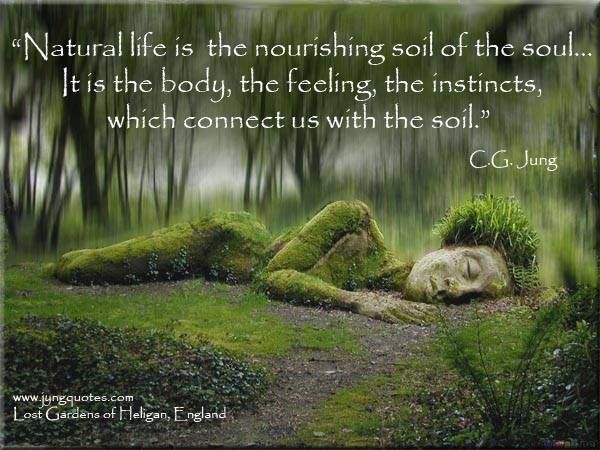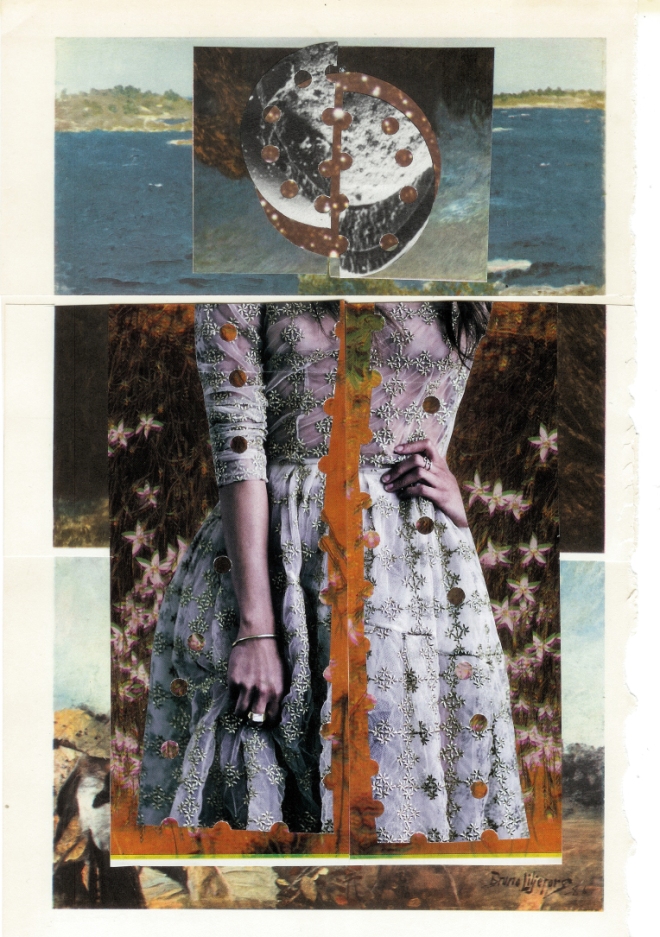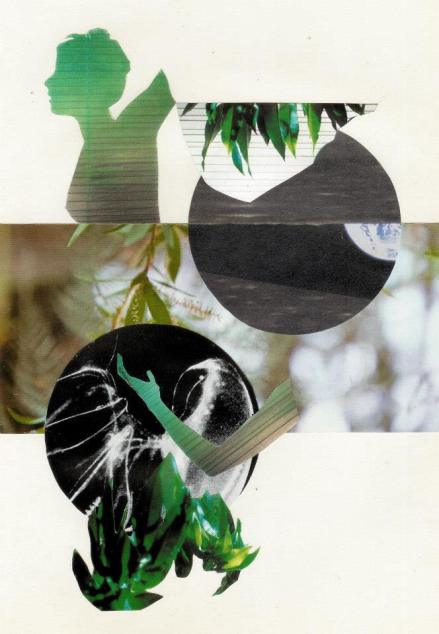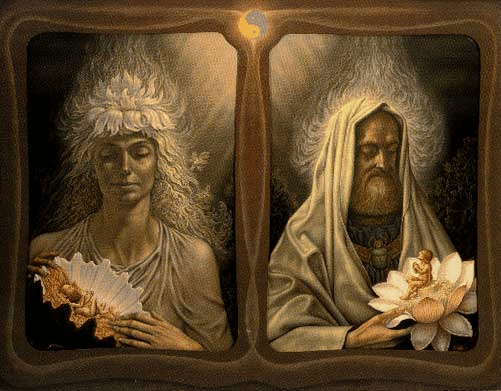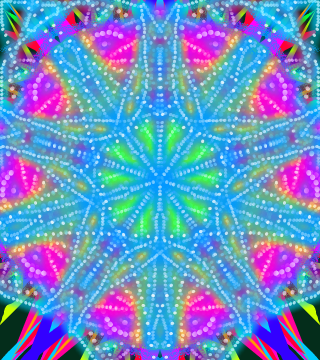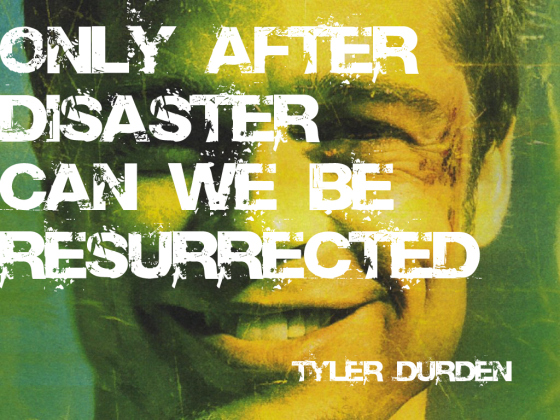Childhood anxiety, illiteracy, and floods of purple sparkly inspiration
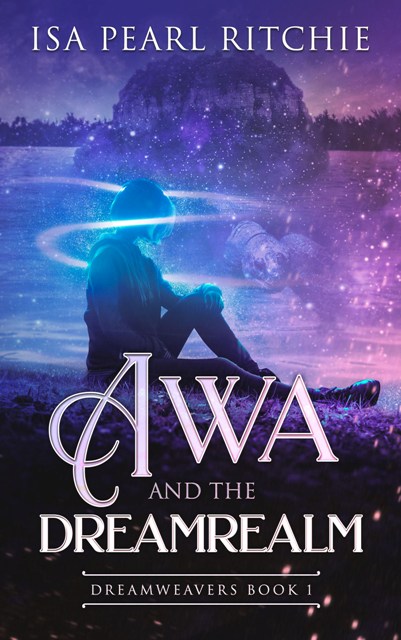
The rush of inspiration came in a flood of purple stars. I was in bed one night, about a year ago. I was falling asleep when I was struck with vision of a mystical glowing creature whispering suggestions for dreams into the ears of dreamers. More ideas flowed and pooled around this one, as I quickly turned on the light (apologising for disturbing my partner) and wrote everything down: dreaming is part of an evolution of consciousness, visions of sparkly purple stars… finding a sensitive child who could see the dream creature… sensitivity as a superpower.
Along with that rush of inspiration came the realisation that this was a book for young people and I’d never written a book for young people before. I felt suddenly compelled to write for young people, realising that fantasy books had played such a major role in my life. As a young person, I’d struggled so much with English literacy, after abruptly shifting from total immersion kura kaupapa, where Māori literacy was so intuitive, into an English-speaking classroom.
It turned out I had an undiagnosed learning disorder, but I wouldn’t figure that out until I was an adult. I was confused a lot of the way through my schooling. Not being able to read or write in English as an eight-year-old in a ‘normal’ schooling context in New Zealand was particularly painfully disempowering. I felt stupid and ashamed and truly believed that it was too hard, that I’d never learn, and that I’d have to find a career that didn’t involve literacy (not many options).
Getting obsessed with particular books was what helped my literacy the most. The first books I got excited about were actually Goosebumps – those spine-chilling tales by R L Stine which were so big in the ’90s. When I was nine, they were the most popular exciting fad, and all the kids wanted to read them. I got caught up in this wave of terrifying obsession and all of a sudden, for the first time in my life, I just really wanted to read.
At first it seemed impossible. It was so hard that I had to get my mother to help read to me (very begrudgingly because she hated those silly books). My first Goosebumps book was about a piano being played by a pair of disembodied hands, and with much persuasion, she would read me a chapter and then I’d read a chapter to myself. I struggled through the first book but my literacy skyrocketed aa I read a whole lot of other Goosebumps books.
My mother, hoping my tastes would mature and realising I liked fantastical things, got out The Hobbit from the library. I struggled with it too, painfully, but I adored the mythical world and cried when some of the dwarves died. Then I read some fabulous local books by Margaret Mahy and Gaelyn Gordon. In intermediate school I was reading Lord of the Rings, which was also a big challenge. But over that time my Literacy went from basically zero to the reading level of an 18-year-old by age 12.
I never planned to write a fantasy novel for young people until that flood of nocturnal, purple, sparkly inspiration came in. After that I realised I wanted to write something that would be relevant for New Zealand kids, that was both familiar and fantasy in a way that I’d rarely found in books. That’s why I loved Gaelyn Gordon’s books. They were just so fantastical: there were three cousin witches in Tripswitch, and mythical creatures that were inspired by local mythology in Stonelight and aliens that lived in your brain in and had magical powers in the Alfred Brown books. Those books made me bubble with excitement.
It was quite a journey going from feeling like I would have no place at all in society because I would never learn to read and write in English to my thrilling love of reading and the sense that I’d finally found places that I belonged even if they were inside the pages of books. I loved reading so much at intermediate school that I learned how to walk and hold books and read at the same time which is really quite satisfying in a way, though it turns out that’s not the ideal way to read (if you don’t like bumping into things, anyway).
Finding that love of books is something I want to share with other young people because I love the feeling of connectedness, of communion with something bigger, deeper and greater. I want to share the sense of meaning and empathy that people can get through reading. These things inspired me to write novels in the first place.
The other thing that came to me in the rush of sparkly inspiration that led to Awa and the Dreamrealm was a surprising sense of terror. It was that kind of fearful awe I get from thoughts of enormous sea creatures in the deepest ocean. And I was very confused about why this was happening. A couple of people I talked to suggested that this fear was part of the story.
The terror made me reflect on the extreme fears and anxiety that I’d experienced as a child, often through ordinary daily life activities. I still struggle with anxiety, and I’ve learned a lot of skills to manage it now, but as a child, I had no idea what it even was.
Anxiety is so invisible. It’s often silent. It’s often thought of as shyness or something else matching the external behavioural responses, but internally it’s extreme and painful and awful and paralysing. For me it is tightening in the chest and constricted breathing, and it was set off by so many things, being such a sensitive child. I’ve read that anxiety disorders in children are on the rise and that 11% of kids experience anxiety, compared to 3% with depression. I’m not sure if it’s actually on the rise or if people just never realised this was happening before.
I suspect that sensitive kids are more prone to anxiety and I wanted to explore this theme in Awa and the Dreamrealm. Being a sensitive person can also be a strength which is why the story kind of celebrates sensitivity as a special ability. I wanted that to be a kind of superpower, and I wanted to bring anxiety into the story in a way where it was both a challenge for Awa and an opportunity for her to develop resilience.
Children and teens have helped me write this book. My eleven-year-old daughter has been a wonderful editor, giving excellent advice. Some of her friends as well as other family members and other young people I’ve never met have read the draft and gave superb advice on how to improve it. I was relieved and excited that they not only read it quickly, but they all enjoyed it, related to the characters and connected with the story.
I started writing and the book bloomed and became enormous. I realised I was writing at least a trilogy, so there are now two more books to come. I think this will make it even more exciting because I wrote this book, in a sense, for myself as a ten-year-old and for other especially sensitive and imaginative, maybe slightly anxious, children. As a child I would have loved the continuity of having a whole series, not just a single book, to mitigate that feeling of sadness when you get to the end of the book and it’s over.
My wish is that Awa and the Dreamrealm can give something of the kind of literary magic that captivated me as a child, helping to boost my literacy to the point where I could eventually write a PhD thesis and novels. And perhaps another child like the past me will pick it up and see a little of themselves reflected in the story.
Awa and the Dreamrealm can be purchased online in ebook and paperback form, and from bookshops in New Zealand.

